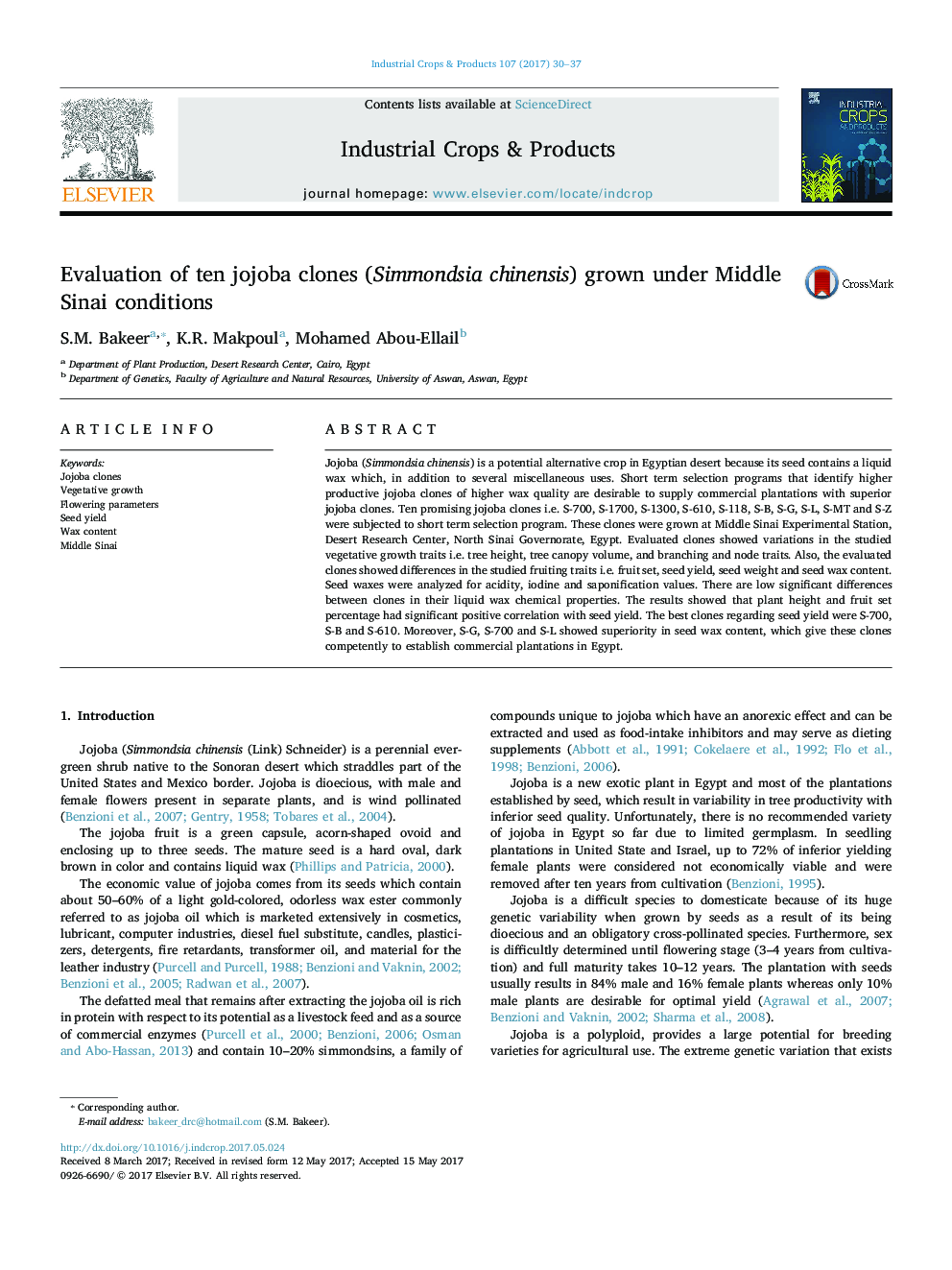| Article ID | Journal | Published Year | Pages | File Type |
|---|---|---|---|---|
| 5762050 | Industrial Crops and Products | 2017 | 8 Pages |
Abstract
Jojoba (Simmondsia chinensis) is a potential alternative crop in Egyptian desert because its seed contains a liquid wax which, in addition to several miscellaneous uses. Short term selection programs that identify higher productive jojoba clones of higher wax quality are desirable to supply commercial plantations with superior jojoba clones. Ten promising jojoba clones i.e. S-700, S-1700, S-1300, S-610, S-118, S-B, S-G, S-L, S-MT and S-Z were subjected to short term selection program. These clones were grown at Middle Sinai Experimental Station, Desert Research Center, North Sinai Governorate, Egypt. Evaluated clones showed variations in the studied vegetative growth traits i.e. tree height, tree canopy volume, and branching and node traits. Also, the evaluated clones showed differences in the studied fruiting traits i.e. fruit set, seed yield, seed weight and seed wax content. Seed waxes were analyzed for acidity, iodine and saponification values. There are low significant differences between clones in their liquid wax chemical properties. The results showed that plant height and fruit set percentage had significant positive correlation with seed yield. The best clones regarding seed yield were S-700, S-B and S-610. Moreover, S-G, S-700 and S-L showed superiority in seed wax content, which give these clones competently to establish commercial plantations in Egypt.
Related Topics
Life Sciences
Agricultural and Biological Sciences
Agronomy and Crop Science
Authors
S.M. Bakeer, K.R. Makpoul, Mohamed Abou-Ellail,
